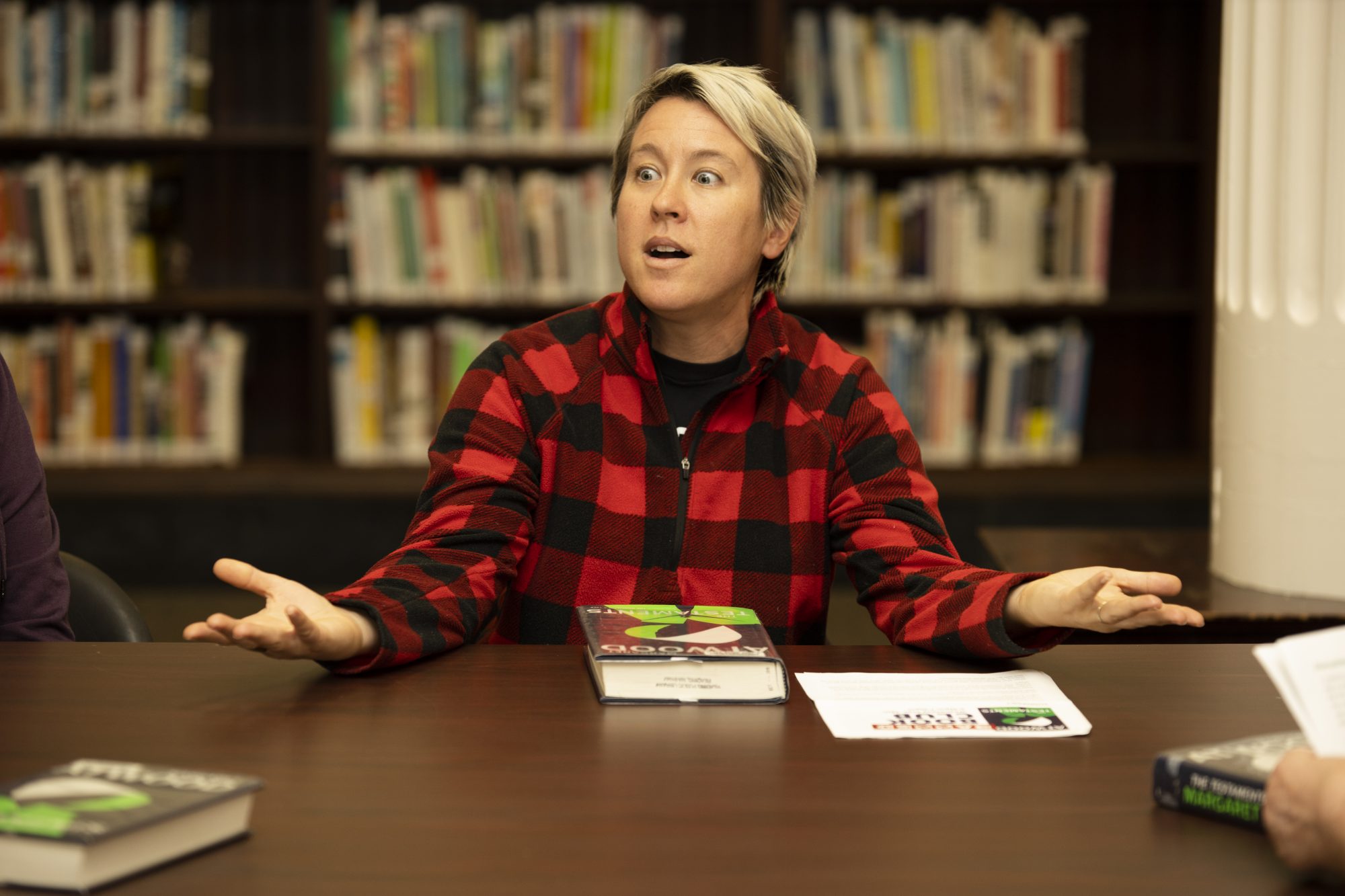LYNN — While the Lynn Public Library’s book club meets every month to discuss books from a variety of themes and topics, this month’s meeting, which took place Wednesday night, touched on a national cultural and political trend: banned books.
Saturday marked the end of American Library Association’s “banned book week,” which celebrates freedom of speech through literature by recognizing books that were restricted or banned in school districts or libraries nationwide.
This year, the literature advocacy non-profit PEN America reported that nearly 2,500 books were banned or restricted in libraries in libraries and school districts across the nation.
Lynn Public Library’s book club reading of Margret Atwood’s “The Testaments,” which is currently banned in Fredericksburg Independent School District in Texas, as well as the Goddard Public School District in Kansas, served as an homage to freedom of speech and expression, Lynn Public Library’s Chief Librarian Theresa Hurley said.
“It was the second book of ‘The Handmaid’s Tale,’ ” Hurley said. “Some people are gonna say that this book is not appropriate, but who are you to say what’s appropriate for me or not? So we just want to highlight that freedom because we have a monthly book club.”
Hurley said that although book banning is not prevalent in Massachusetts or in Lynn, the library occasionally receives a request to have books pulled from its shelves.
“There’s a book about human development, you know, it’s a kid’s book that talks about changing bodies, and there are some cartoon pictures that might have nude people or whatever. Parents might be offended by that, but if a kid comes in without a parent, we don’t act in place as a parent to say ‘you shouldn’t be reading this,’ ” Hurley said. “[book banning] is a suppression of people’s rights to free speech and to learn and to read what they want to read. I don’t think any entity should dictate what is right or wrong for people to consume.”
As Hurley sat down with four book club members to discuss Atwood’s novel, one of the first questions she asked the group was: “why do you think this book was banned?”
“I was just reading in a newspaper today that Judy Blume books from the 1970s had vulgarity and sexual undertones, and those were in school libraries for sure, so I think that it’s more about I trying to limit people’s access to broader thought,” said Book Club Member Alexandra Novakouski.
Anthony Cammalleri can be reached at [email protected]

